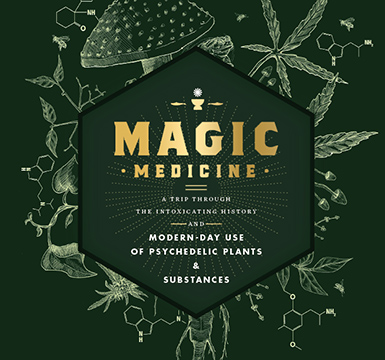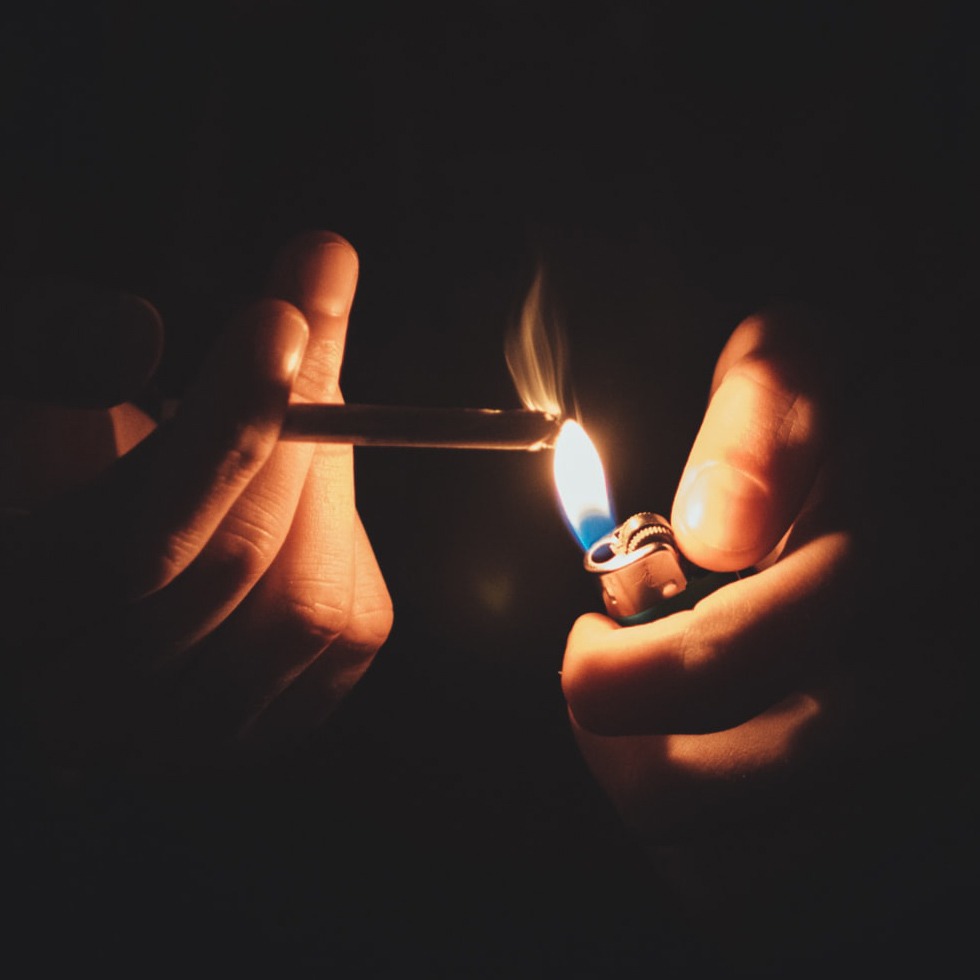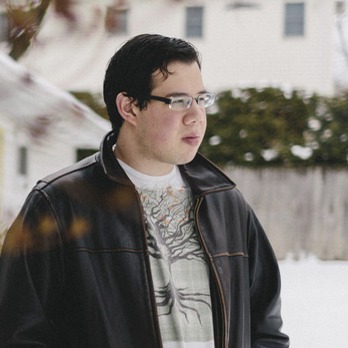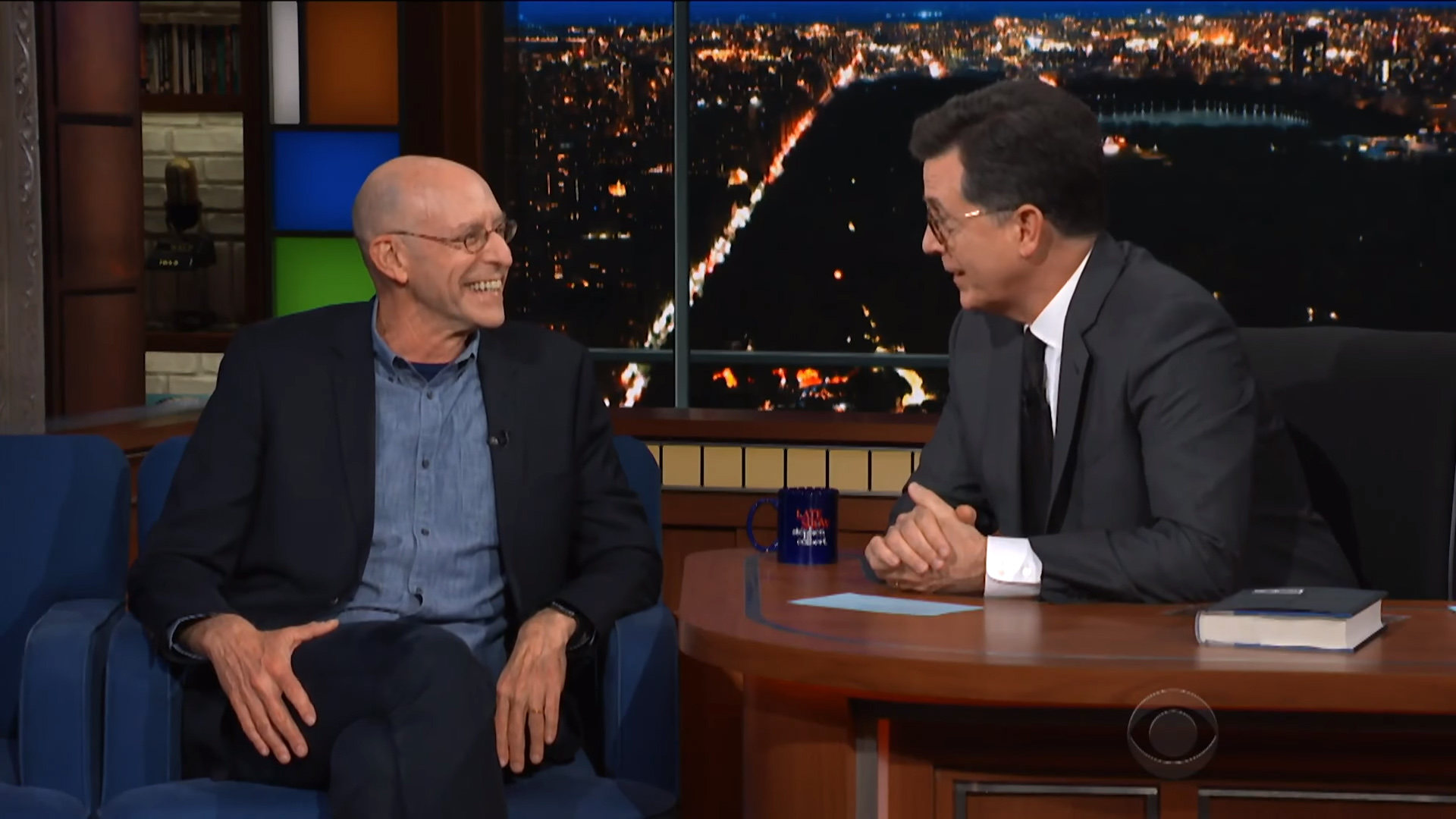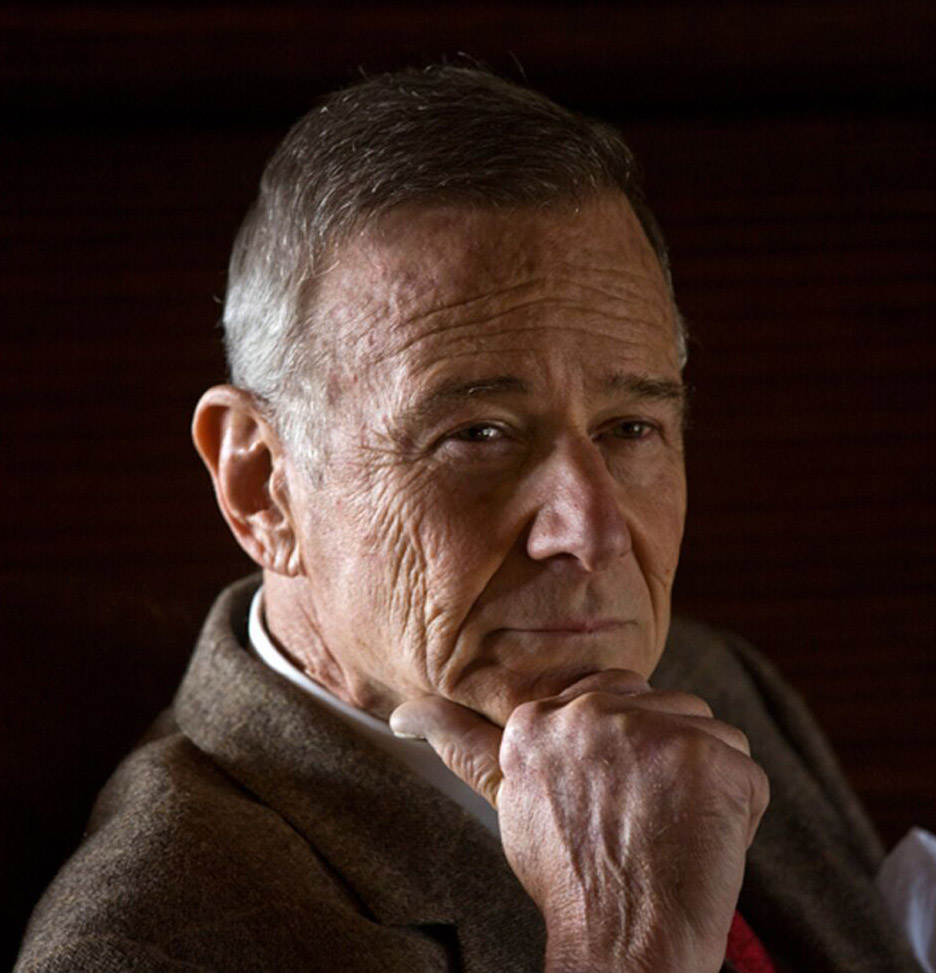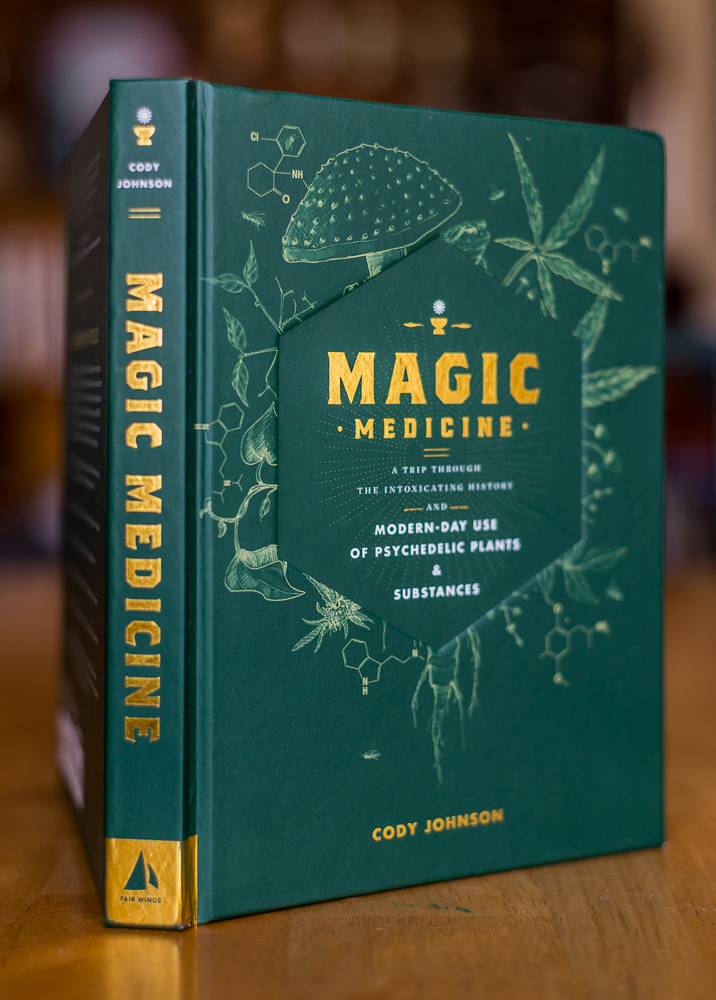This guest post is by Magdalena Tanev, Co-host of the Brains Byte Back podcast and Senior Writer at Publicize.
![]()
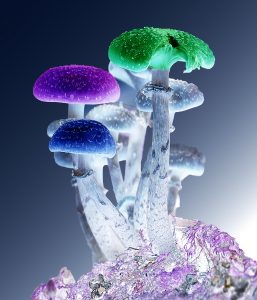 The tides have turned regarding public opinion about psychedelics. Since Nixon’s 1970 Controlled Substances Act, which criminalized LSD, psilocybin, mescaline, and DMT, potential uses for these drugs have been legally stopped in their tracks and engulfed by a widespread moral panic. Until now.
The tides have turned regarding public opinion about psychedelics. Since Nixon’s 1970 Controlled Substances Act, which criminalized LSD, psilocybin, mescaline, and DMT, potential uses for these drugs have been legally stopped in their tracks and engulfed by a widespread moral panic. Until now.
Not only are we seeing an uptick in vital research for clinical and therapeutic applications of drugs like psilocybin, MDMA, LSD, and ketamine, but big names from across the spectrum are speaking out in support of psychedelics and plant medicines. Bringing this conversation into the mainstream will play a key role in pushing research forward, shifting attitudes, decriminalization and, hopefully, the successful re-integration of these compounds back into modern society.
Joining the conversation
Keen to contribute, I decided to dip my toes into the psychedelic space and run a four-part mini series called The New Era of Psychedelics, on the podcast I co-host, Brains Byte Back. The series kicked off with Delic founder and High Times’ former VP of content, Jackee Stang. This interview covered everything from the public’s shifting perception about psychedelic drugs, the patriarchy in the psychedelic space, and the impact of the COVID-19 pandemic. In the second installment of the series, I dove into the topic of microdosing with an experienced microdoser (who preferred not to give his identity) and clinical biologist and psychedelic writer, Gaurav Dubey. In episode three, I explored the therapeutic value of ayahuasca with Kat Courtney, founder of AfterLife Coach, and an Ayahuasquera who trained for 10 years with indigenous communities. The series finished with an episode on the transformative power of psilocybin with The Sociable editor and mushroom-enthusiast Tim Hinchliffe.
I learned that the psychedelic renaissance is more than underway, thanks to the many individuals, organizations, and communities from across the cultural and scientific spectrum that are working relentlessly to make this revolution a reality. The movement is multifaceted; it will be a combination of continuous research, amplified diverse voices, and a commitment to open and honest discussion in mainstream forums that will help it maintain its momentum.
Psychedelic research speaks for itself: A look at the science
The state of research into psychedelic compounds today is a far cry from what followed post-criminalization in the 1970s, 80s, and 90s. Leading the charge are institutions like the Multidisciplinary Association for Psychedelic Studies (MAPS), the Johns Hopkins University School of Medicine, and the NYU Grossman School of Medicine, amongst many others. Research from these institutions is being conducted to explore the potential for psychedelic drugs to help with conditions such as addiction, depression, anxiety, and PTSD – all of which are chronic epidemics in today’s society. Currently, these are treated without great success using pharmaceuticals that are sometimes more harmful than beneficial.

For example, one Johns Hopkins study found an 80% abstinence rate in smokers that had taken psilocybin in a controlled environment. Research from the US National Library of Medicine discovered a substantial and sustained decrease in depression and anxiety in cancer patients after a dose of 3.2g of psilocybin mushrooms.
MDMA-assisted therapy for PTSD sufferers has shown extremely promising results and multiple further trials are underway – with MAPS pushing for the drug to be FDA approved as early as 2022. In Phase II of one MDMA-assisted therapy trial, 56% of the 107 patients, who had suffered with PTSD for an average of over 17 years, stopped showing signs of the condition after one session.
MAPS also sponsored the first study of therapeutic LSD use since the 1970s, in Switzerland, which indicates the effectiveness of LSD in reducing anxiety in people with life-threatening illnesses. Ibogaine has shown promise in its use as a treatment for opiate dependence in studies in Mexico and New Zealand, and Beckley Psytech has just landed £3 million in Series A funding to drive forward its research on a synthetic form of 5-MeO-DMT, which is traditionally found in the secretions of the Mexican Sonoran Desert Toad. The UK medtech company hopes to create an effective treatment for depression with the synthetic version of this ancient plant medicine. Research on individuals that microdose LSD and psilocybin, while very much in its infancy, indicates boosts to mental wellbeing and psychological functioning.
[pullquotecenter]The psychedelic renaissance is more than underway, thanks to the many individuals, organizations, and communities from across the cultural and scientific spectrum working relentlessly to make this revolution a reality. [/pullquotecenter]
This is just a minor snapshot of the research that has surged over the last decade, and more evidence if needed before decriminalization of these compounds looks like a reality. However, shedding the stigma associated with psychedelics will only happen when they are clinically proven to be safe and effective options for treatment. Research demonstrates that, when administered in a controlled setting and under the supervision of professionals, psychedelics can hold astounding therapeutic and psychological benefits in the treatment of some of society’s most challenging issues in healthcare today.
But that doesn’t mean that there is only space for scientifically-backed research in the psychedelic renaissance. Indigenous communities have been gaining benefits from psychedelic compounds outside the professional setting for thousands of years, and there is much to be learned from psychedelic use in non-clinical settings.
Amplifying voices from across the spectrum
In order for the psychedelic renaissance to maintain momentum, we must also shine a light on the work of those that have not traditionally been given a voice and acknowledge that the psychedelic renaissance is overwhelmingly white — and that’s a problem.
This means acknowledging and supporting the work of indigenous peoples, to which the scientific community owes much of its success. In addition, we must showcase the contributions of other disenfranchised groups, including women and ethnic and racial minorities, and make a commitment to include more non-white participants in ongoing trials.
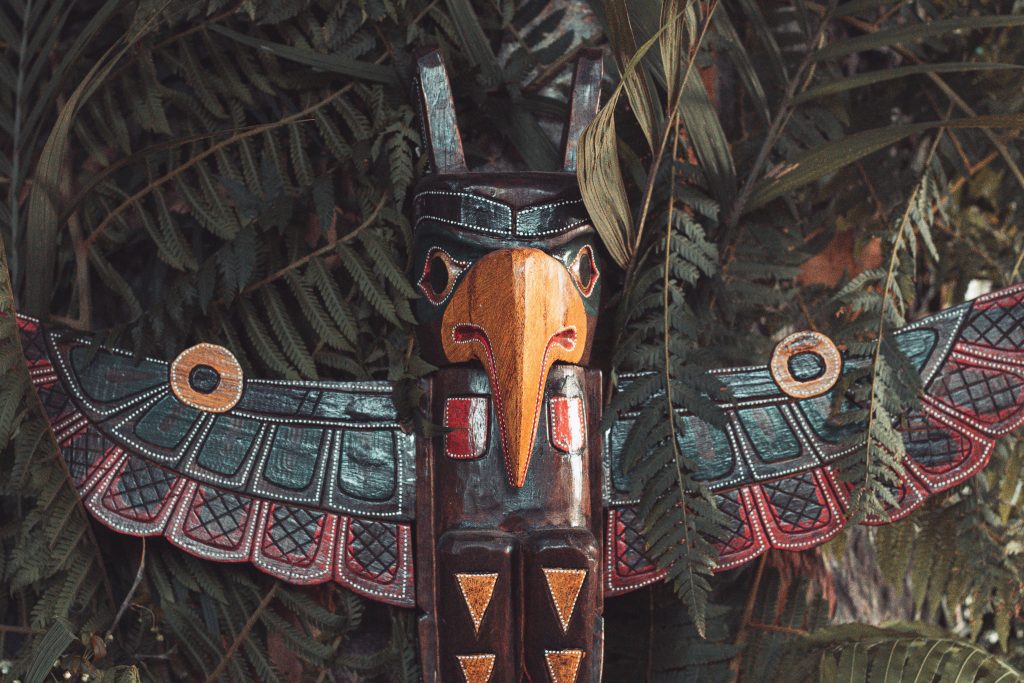
Kat Courtney, my guest on the third episode of the miniseries, explains the crucial importance of understanding the traditions of indigenous communities in order to pour the Ayahuasca brew.
“It’s important to me to maintain the integrity of the lineages that have existed for thousands of years, you know with Yage and the Shipibo tribes, this has been [in] those cultures for thousands of years,” says Kat. “Yet someone in their yoga studio who has drunk the medicine ten times is stepping up and saying ‘I know how to do this.’ It doesn’t work that way.”
Kat goes on to express the need to keep the medicine in a “safe container” to make sure people have healing experiences — not traumatic ones.
The need for inclusion in the psychedelic space spreads across gender and racial identities, spans across every social demographic and lives within each and every one of us. Thus, inclusion and a focus on ethics are paramount in this psychedelic renaissance. In the first episode of my podcast, I spoke with Jackee Stang about being a woman in a space dominated by men. “You can feel a resistance to the new guy, which is natural, but it comes from a place of fear,” explains Jackee. “But there are some amazing medicine women who have been doing it quietly for years. Women need to take our shine and step into the light.”
Jackee criticizes the old-school, male dominated groups for rejecting new voices in the psychedelic space. “It’s not effective in finding solutions and progressing. The space is ripe for women who have done the work and found wisdom to represent these substances in ways that can bring a more mainstream audience in.”
Race, psychedelics and social justice
Undoubtedly, it’s also vital to recognize the struggle of ethnic minorities and how the psychedelic conversation has been inaccessible for them in ways that white people have not been forced to consider. Racism is at the center of the war on drugs: Black people have not been provided the same space that white people have enjoyed to speak out about exploring psychedelic compounds, nor do they have the same access to the resources necessary to undergo psychedelic experiences in a safe, legal and controlled manner.
We must acknowledge that the psychedelic renaissance is overwhelmingly white — and that’s a problem.
Big players in the psychedelic community must work with organizations made up of women, black and indigenous people of color, and sexual minorities. They must also recognize and showcase the work of individuals – be they researchers, guides, therapists, or anyone else contributing to the cause. For example, the People of Color Psychedelic Collective works to provide psychedelic education to marginalized communities and foster empowerment and healing. Researcher and therapist Dr Monnica T. Williams led the first ever MDMA study which focuses on the trauma of ethnic minority groups. Abdul Wilkins, otherwise known as the Beantown Ghetto Shaman, is an intuitive healer who facilitates psychedelic ceremonies that are aimed at people of color and low-income communities. The space is ripe with notable minority voices contributing in their own way and on their own terms.
Ultimately, the modern resurgence and noteworthy progress of the psychedelic renaissance not only means working to give voice to – and recognizing the work of – those who have been historically excluded from the conversation, but also actively fighting the institutions that perpetuate their marginalization.
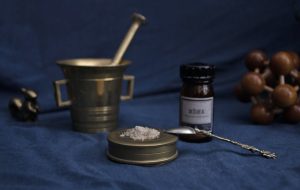
Bringing psychedelics out of the shadows
Making psychedelics mainstream means getting mainstream voices on board, too.
Michael Pollan is best known for writing books on topics surrounding food, agriculture, and gardening. When Pollan wrote a book in which he explores the history of psychedelic drugs as well as detailing his own experiences with LSD, psilocybin, Ayahuasca, and 5-MeO-DMT, “regular” folk listened. How to Change Your Mind became a number one New York Times bestseller, and has since arguably played a role in shifting the paradigm around the public perception of psychedelics.
Shedding further light on the power of psychedelics to provide real therapeutic and transformative value are the likes of public figures and podcast hosts, Joe Rogan, Tim Ferriss, and Sam Harris. Rogan regularly dives into topics of psychedelics, namely DMT, on his multi-million listener podcast, the Joe Rogan Experience.
Ferriss is an avid proponent of and donor to psychedelic research, and is working to “not allow the medicine to be pushed back into the shadows.” The writer, entrepreneur, venture capital investor, and podcast host has interviewed a number of experts in the psychedelic space on his own podcast, the Tim Ferriss Show, including MAPS founder Rick Doblin and psilocybin mushroom expert Paul Stamets. Meanwhile, neuroscientist, philosopher, and author Sam Harris has openly discussed his own recent psilocybin experience and past psychedelic experiences, and continues to explore the ways in which psychedelics can help in areas of understanding consciousness and practicing mindfulness.
These examples of psychedelics entering popular forums have been vital to bringing the psychedelic renaissance to the point where it is now. As the movement continues and becomes increasingly inclusive, I hope to also see more diverse voices at the forefront of such mainstream conversations.
Pushing the psychedelic renaissance forward is a responsibility that lies on many shoulders, and it’s one that countless organizations are taking on by making psychedelic knowledge more accessible and demonstrating the power of psychedelic therapy. The combination of rigorous scientific research, the amplification of historically overlooked communities, and the cooperation of mainstream voices will play an invaluable role in putting the psychedelic renaissance on the radar of those who need it most.
![]()
If you liked this article, check out Magdalena’s Brains Byte Back podcast.
Liked this post? Subscribe to my RSS feed to get much more!

